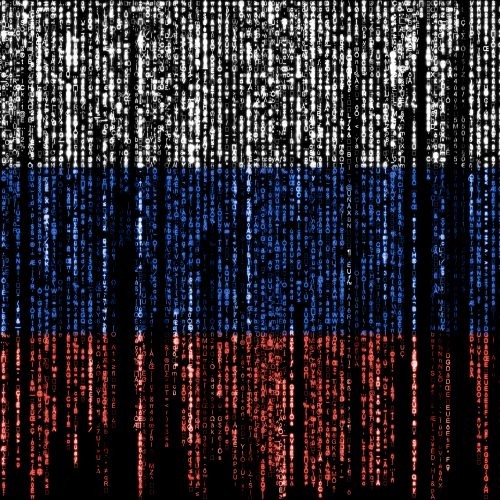A busy longevity clinic owner is 33 but says her biological age is 22. Here's the daily routine she follows.

Magdalena Wosinska
- Kayla Barnes-Lentz spends all day optimizing her health to try to live to 150.
- She also runs her own business, so has to fit her biohacking around her busy workday.
- She has a 2.5 hour-long morning routine, takes regular biohacking breaks, and goes to bed by 8:30 pm.
From the second Kayla Barnes-Lentz wakes up, her day is built around enhancing her health.
Barnes-Lentz, 33, told Business Insider that her extensive biohacking routine has helped her to reverse her biological age by 11 years. Biological age is a measure of how healthy a person's cells and organs are, but scientists don't agree on the definition.
As a co-owner of a longevity clinic in Cleveland and the host of a podcast about health optimization, she counts this routine as part of her work.
"During work, I have my office optimized for optimal productivity, and I incorporate health optimization practices throughout the day," she said.
Barnes-Lentz's habits aren't all scientifically proven. But she and other biohackers, such as the millionaire entrepreneur Bryan Johnson, take a chance on experimental treatments to live as long as possible. Barnes-Lentz wants to reach 150, while Johnson's mantra is "don't die."

Masha Maltsava
She's inspired by naturopathic medicine, which is based on folk healing methods rather than evidence-based medicine. Barnes-Lentz and the medical team at her clinic use scientific literature to "guide" what she describes as her "health protocols." She said she has also hired female PhD candidates to "dive into the literature" around women's health and longevity to inform her female-focused protocols, which she sells.
For the average person, experts say that getting the basics right can make a big difference to longevity. For example, a study published last year found that a healthy diet can increase lifespan by up to 10 years, and Nathan K. LeBrasseur, a physiologist at Mayo Clinic, previously told BI that spending just 3% of your day exercising can contribute to healthy aging.
Barnes-Lentz shared how she fits biohacking around running her business.
Before work, she spends 2.5 hours biohacking
Barnes-Lentz's morning routine is 2.5 hours long. She starts with what she describes as an "oral protocol," which includes tongue scraping, water flossing, and oil pulling. Tongue scraping and flossing are commonly recognized as effective ways to reduce bacteria and plaque in the mouth. But there's not enough evidence that oil pulling, an Ayurvedic practice that involves swishing oil around the mouth, is good enough for oral health to be recommended by the American Dental Association.
She also does her first round of pulsed electromagnetic field therapy, a noninvasive treatment in which bursts of electric currents are sent through soft tissue across the body.
"I think of our body as a battery, and PEMF can increase your charge," she said.

Magdalena Wosinska
Evidence suggests that PEMF could be useful in treating osteoarthritis and bone fractures, but more evidence is needed to confirm this, according to the authors of a 2023 review of research published in the International Journal of Molecular Sciences.
Barnes-Lentz also works out, gets some sun exposure to regulate her circadian rhythm, spends time in a sauna, showers, and measures her biometrics (body composition, grip strength, lung health, and blood pressure) before breakfast.
She does red light therapy while working
Barnes-Lentz works from 7:30 a.m. to 5 p.m. most days, running her longevity business, podcast, and social media accounts, including her Instagram account, which has 383,000 followers. She tries to do 10,000 steps a day and move her body as much as possible.
To do so, she takes calls while walking and takes breaks every 90 minutes to walk or do what she considers a biohack, such as standing on a whole body vibration plate.

Magdalena Wosinska
Even when she does desk-based work, she said she's biohacking. This involves sitting on a "biohacking desk chair," which encourages good posture, and wearing a red light therapy cap to help her hair grow faster and thicker. Red light therapy has been found to help with hair regrowth and increasing thickness and length in some large randomized trials, according to the American Academy of Dermatology.
In her office, she has an air filtration system and uses natural light instead of LEDs to avoid interrupting her circadian rhythm. In a 2023 research report published in the journal Frontiers in Photonics, experts agreed that blue light from LEDs can disrupt sleep when people are repetitively exposed to it for prolonged periods at night.
Barnes-Lentz also inhales humid air using a NanoVi machine —which is advertised as a means to repair proteins in the body damaged by oxidative stress — to improve her cognition and brain health. Research suggests that oxidative stress, which is caused by factors including sunlight, alcohol, and certain medications, plays a role in aging and the development of neurodegenerative diseases.
A small 2022 study suggested that it could help improve cellular health and cognition in older people. Published in the International Journal of Molecular Science, it involved four people with cognitive impairment who used a NanoVi over 12 weeks. However, more research is needed.
A cold plunge at lunchtime

Masha Maltsava
"My mid-day routine consists of a whole body vibration plate and cold plunge, which gives me a natural increase in energy, followed by a hyperbaric chamber session," Barnes-Lentz said.
She does five hourlong sessions in a hyperbaric chamber each week, using the time to catch up on messages on her phone. Hyperbaric oxygen chambers contain a pure, pressurize form of the gas to increase its absorption in the body. They are used to treat conditions including burns, wounds, skin and bone infections, and hearing and vision loss. Small studies have found that they might have anti-aging benefits too, although the FDA hasn't approved them for this use.
After work, she goes for a walk and optimizes her sleep schedule
Barnes-Lentz and her husband eat dinner at around 5 p.m., more than three hours before they go to bed at 8:30 p.m., to help them sleep.
She knows that a varied diet is good for the gut microbiome, so has different organic, seasonal vegetables and fruits delivered each week. The structure of her meals is always the same: vegetables, high-quality proteins, healthy fats, and carbohydrates that don't spike her blood sugar too much a few times a week, she said.
After dinner, the couple walks for 50 minutes in the hills around their LA home to aid digestion, catch up on their days, and get in more zone two cardio.
"Then, we begin our wind-down routine, which may involve more PEMF or relaxing together. At sunset, we ensure that the house is only red light to promote the release of melatonin," she said.
Some studies have found that using artificial red light at night can improve sleep quality, but a 2023 study published in the journal Frontiers in Psychiatry found no evidence that red light increases melatonin secretion and, in some cases, can increase alertness.
"I've worked really hard to build the life that I have. I'm incredibly blessed and very fortunate that I get to move my body and get to do all these things. And I'm excited to see what that's going to lead to in the future," Barnes-Lentz said.


